#village glovemaker
Photo
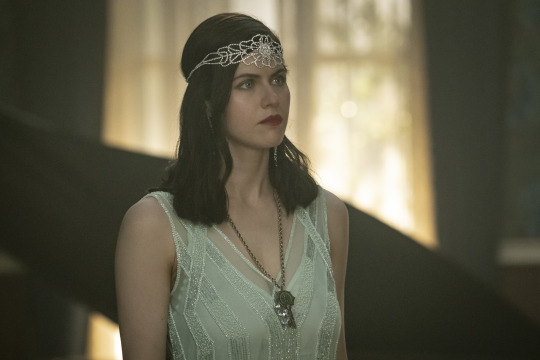
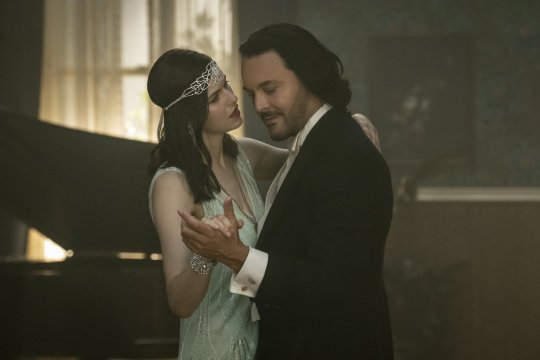
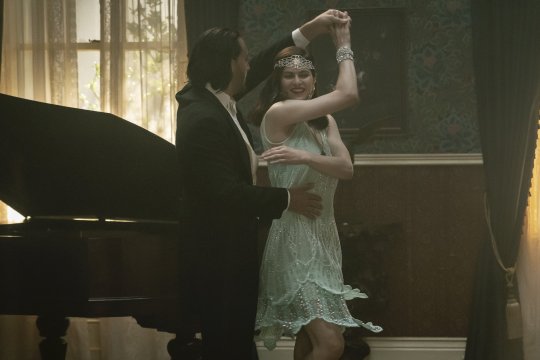
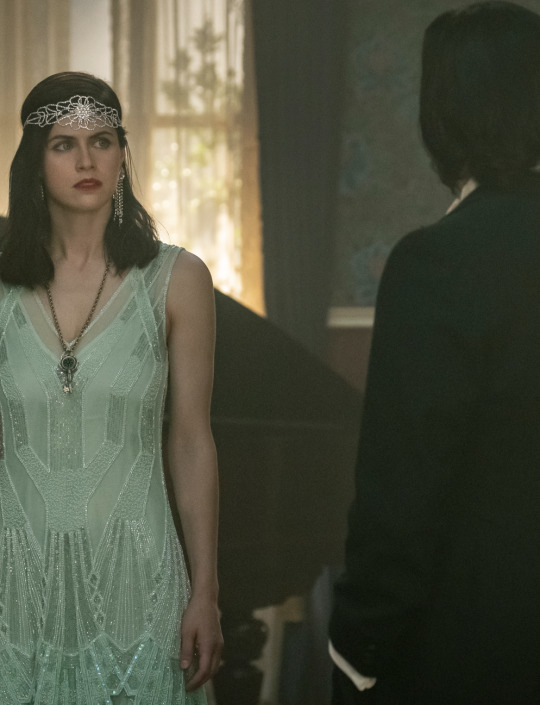
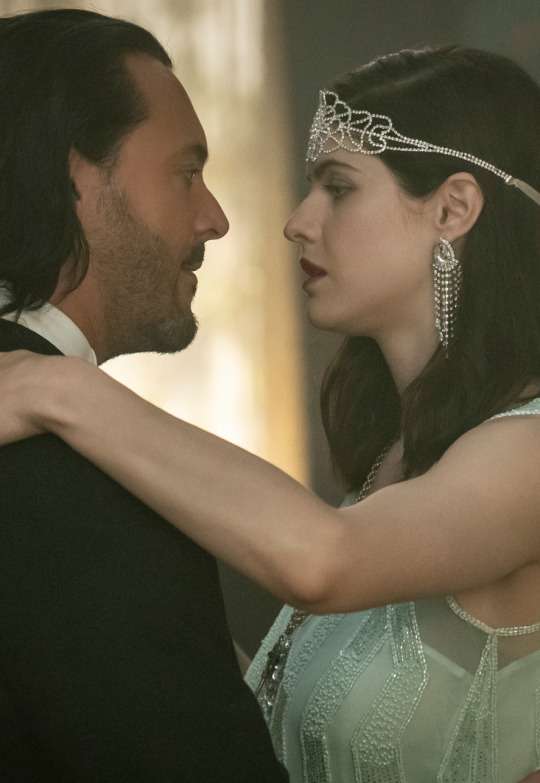
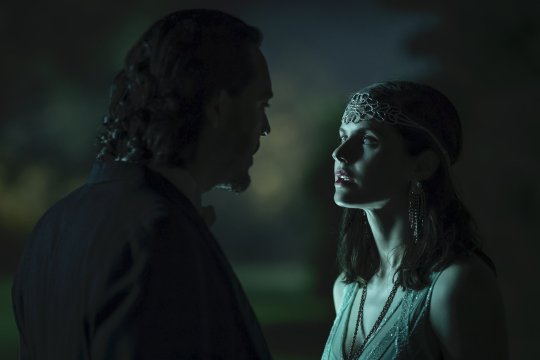
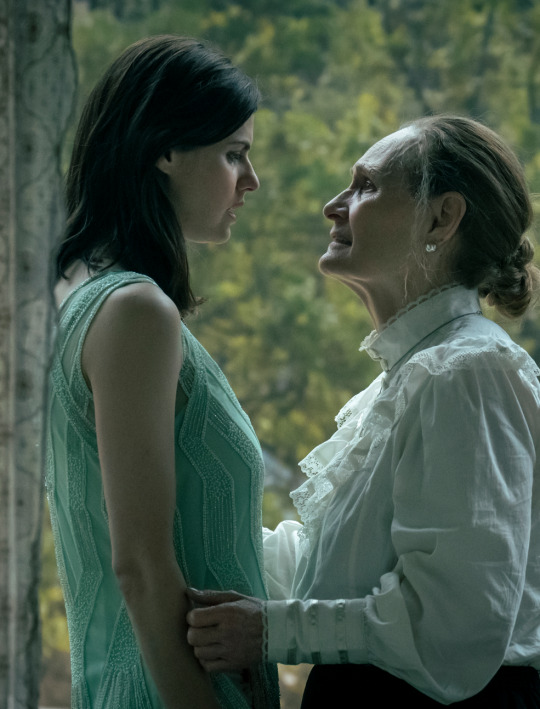
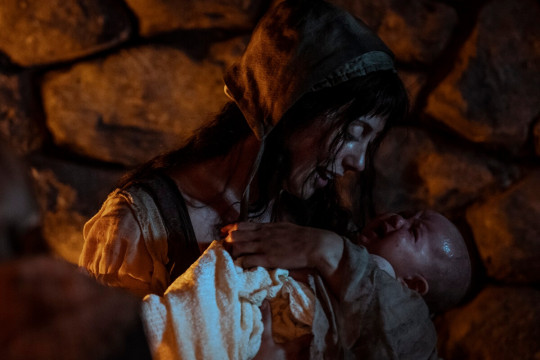

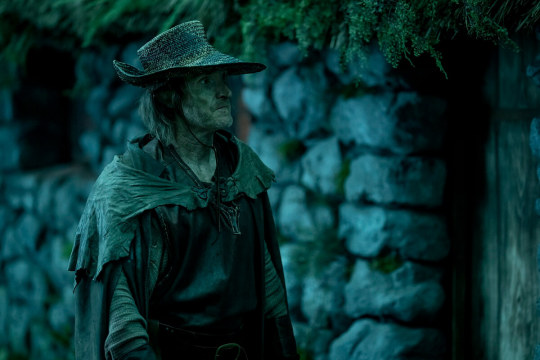
Promotional stills from the fifth episode of 'Mayfair Witches', titled 'The Thrall'.
#mayfair witches#rowan fielding#lasher#carlotta mayfair#village glovemaker#suzanne mayfair#alexandra daddario#jack huston#beth grant#jay howard thames#hannah alline#mayfair witches 1x05#anne rice's mayfair witches#1x05#stills
46 notes
·
View notes
Note
well, I... John Uskglass?!!??!?
Well, if you insist….xD
How I feel about this character
I mean….*sweeping gesture towards blog* I suppose you could say have something of an appreciation for him?
xD Nah, But seriously, from the very moment he appeared on that snowy Yorkshire moor in front of Childermass, I’ve loved this guy. Forget the scene, he stole the whole book! I love the mystery that surrounds him, how much of an enigma he is; I love that he is this incredible force of nature, this legend, this being that seems so Fae at times and so inscrutable. I love how absolutely extra he is? This inclination for melodrama developed over years of growing up in Faerie: Why just walk into a room when you can materialize out of a chaos of ravens? Why simply refuse to learn to read when you can create your own writing system, one that more easily aligns to your own way of thinking? Why take your vengeance for your parents deaths out on the one guy who did it, when you can conquer half an island? The man has two modes: “Cool Arrogance” and “Sinking Coastal Yorkshire Villages Into The Sea” and I kinda love it? (though, just to make things clear, I don’t actually approve of the drowning of Coastal Yorkshire Villages, no matter what allies they’ve made in their quest not to pay their taxes. In case it needs to be said)
Most of all, I love how incredibly human The Raven King can be as well. There’s compassion – offhanded, a second thought, of course, yet still there– in the way he heals Childermass before he vanishes again. There’s humor in his parting words to Childermass, “You are wrong, he is not dead” – a dry, ironical sort of understatement, that the man can’t even hear, you can nearly picture the smirk curling at his lips as he says it! And there’s care in all that he does. He set in motion a plan three centuries in the making, manipulating who knows how many events, all for the sake of England, for his Kingdom, to bring magic back. John Uskglass is a teacher, he gave magic to England and it spread through his own students. John Uskglass is an explorer, building the King’s roads and traveling to countless realms in search of more Knowledge, more Magic. Yes, of course all of these traits are twisted and filtered through a more Fairy lens, why wouldn’t they be? He was raised by these beings! He’s not fully human – but he’s not entirely Fae either. He’s this strange mixture of both that neither can really understand. It’s isolating, it’s lonely, and it’s fascinating. I just…love the Raven King when he’s shown as a person?
And I just…love how he’s presented in the book? We don’t see him until that scene at the end, but by that point in the book, you’ve heard so many legends and stories and Historical anecdotes about him that you just…feel his presence over the whole story? By that point, you know about his conquest of Northern England, and of his youthful Arrogance, refusing even to learn how to read, because what could he possibly gain from doing so? You’ve heard about how he gradually became less arrogant, less like a Fairy and More like a Man after ruling his Kingdom for so long and how he did eventually learn to read – how he decided that engaging with the thoughts of others was worthwhile after all! You hear about his Strange Fae nature in the Raven King Ballad, how he’ll spirit away unsuspecting people to his realm in Fairy. You’ve read about his cruelty: the incident with Henry Barbatus, the Yorkshire Village he sank into the sea. You’ve heard rumor of his multiple returns to England: Riding off of a Fairy Road and blessing the family of the Farmer at the end of it who gave him food and a horse; Guiding back home the daughter of a Newcastle Glovemaker who had wandered her way into Faerie; As an omen of ill fortune for a group of shipwrecked basque sailors. You even know the names of those close to him: Thomas of Dundale, William of Lanchester, Catherine of Winchester.
But in the end, how much do you really know at all? Do you know if any of these tales are true? If they are then they only open more questions. What are the other sides of these tales? Who were those others with the King when he departed from the Fairy Road, the one who vanished along with it with the morning mist, who the Raven King so blithly told the Farmer not to worry about? How did the Glovemaker’s daughter find her way inside the Raven King’s house? Did she just stumble upon it or did he bring her there? And why?
It’s fantastic. You get all of these glimpses of the character, and you can’t help but build an image from them in your mind. But it’s never a complete image. Never full, you can never really understand the Raven King any more than any of the characters in the book can.
(So um yeah…apparently I have *alot* of feelings about the Raven King. xD)
All the people I ship romantically with this character
Alright so my main ship for this guy is actually John Uskglass/England, take that in whichever way your imagination is inclined, because yes I probably mean it that way. Honestly, when you see how Happy all of Nature is when it thinks Stephen is the Raven King and that John Uskglass is returned? It’s just really cute?! How can you not?!
On a more Human level, as I’ve said before, I do actually picture John Uskglass as being pansexual, and as per his fairy upbringing, rather more casual about his sexual relationships. That said….I actually have very few ships…with like…named characters, for Uskers? Maybe it’s because I do see his affairs as so casual most of the time, or maybe it’s just because he’s so isolated a character. I dunno. Black Joan is the one character that’s a definate yes. If she’s anything like her son, she’d be shrewd and cynical and the sort of person who can hold her own against the Raven King. I have to admit I definitely love that sort of fairy-tale like trope of this Great and Powerful King, and this relatively ordinary thief falling for one another as well. So yeah, definately here for Black Joan/John Uskglass. Otherwise? Hrmm… I need more Raven King Ships. Any one got any suggestions?
I will say that when John does fall in love, he falls hard. He doesn’t like it. It’s such a soft, vulnerable feeling, and placing your heart into someone else’s hands, to be broken at any moment? It’s foolish, so far as he’s concerned. He is a King in Faerie, after all, he cannot afford to be vulnerable. So he tries to deny any feelings he may develop for a person, even to himself. If you do get him to the point of admitting it though, I will say he can be absolutely doting.
My non-romantic OTP for this character
Okay, so I’ve talked about this before, but I do headcanon Thomas of Dundale and John Uskglass as having grown up in the brugh together, pretty much. Thomas –like the naturally born extrovert that he is ;) – kind of attached himself to John and over the years became something like an older brother to him? I can’t help but picture him as being very protective of the young Raven King, and, having been taken at an age where he could remember things, where he had developed a more human sense of right and wrong, Thomas helped provide something of a balancing point against the Fairies as John was growing up. Thomas encouraged those more human aspects of John’s character, and he was there to talk to about these aspects of himself, these more human instincts, that John might not have understood so well growing up surrounded by Fairies – empathy, compassion, caring. And that bridge that Thomas provided was so important later in John’s life, after he returned to England. It wasn’t merely language that Thomas was translating, but culture, an entire way of thinking that John didn’t fully understand yet. I mean?! Their relationship is just so important to me and how can I not love them?!
And yet, on the other hand…There’s also William of Lanchester? I mean, he’s specifically marked out as The Raven King’s Favorite and Most Trusted servant, and I can’t help but picture this guy as the most Eternally Tired man in all of Northern England. xD William is the sensible,trustworthy, reliable one and that’s such a beautiful contrast to John Uskglass? Part of me loves the idea that a big part of why John trusts William so much is because William will say ‘No’ to him. He won’t flatter or stay quiet if he feels he needs to speak against John (see: Henry Barbatus). Does that mean John will always listen? That he’ll always appreciate William’s input? No, of course not (also see: Henry Barbatus) But he will get the truth, and that is important too.
And again, on the third hand, I really do love the whole relationship between Catherine of Winchester and John Uskglass as well. I love the idea of the Raven King as a teacher, and Catherine herself is just really awesome? And the idea of even John Uskglass being impressed at her dedication to magic, of how much he finds himself valuing her as a pupil, and growing to care about her over the coarse of their relationship, just…as a person? I feel like John Uskglass does most easily connect to other people through magic and through teaching, and I like to think that Catherine was one of his favorites…
Ughh. I can’t choose. Let’s go with all four of them hanging out in 13th century Newcastle. Yes? Yes. Good! 8D
My unpopular opinion about this character
I’m not sure. I don’t…think I have any unpopular opinions? What are the popular ones? Are we all in agreement that the Raven King is a Melodramatic Goth Nerd and That is Why We Love him?
One thing I wish would happen / had happened with this character in canon.
I want just…more in general? I mean, like more, like a whole series of historical novels focusing on the intrigues and plots surrounding the Raven King’s court. I want to see him interacting with all of these historical personages, reacting to like historical events happening, how magic and his presence changes that past? It would be *amazing* and I want it so badly!
…so I’m prolly gonna have to write it myself xD
#Jonathan Strange and Mr Norrell#JSMN#John Uskglass#jordenspuls#welp this ended up longer than I thought#any excuse to ramble about the Raven King ;D#seriously talk to me about this nerd
22 notes
·
View notes
Text
Book Review: The Glovemaker
The Glovemaker by Ann Weisgarber is a highly suspenseful novel that takes place in Utah Territories during the winter of 1888. The book is a Women Writing the West’s 2020 WILLA Literary Award Winner.
Samual Tyler is past due. He left on a business trip and is late returning home. It’s possible that he’s found other out-of-the way customers. As a wheelwright his services are in high demand.
Deborah Tyler is worried about her husband, but common sense tells her that delays are not only possible, but likely. It’s the dead of winter and travel is hard—anything can happen. Deborah adds to the family income by helping her husband in their orchard, and she also makes fine leather gloves. But now all she can think about is her husband’s safety.
The Tylers and seven other families live in Junction, a small Mormon community with homesites scattered along the floor of a canyon. Junction’s citizens don’t believe in plural marriage and have splintered off from other Utah Mormons.
A desperate stranger pursued by a Federal Marshall appears at Deborah’s door asking for shelter for the night. She’s hesitant, but doesn’t feel right about turning him away. She offers the use of her barn for the man and his horse. As she dreads, a Marshal comes in search of the man, catching Deborah in the web of a spiraling chain of events. She learns the man she sheltered is a polygamist and is on the run from the U.S. government, which has ruled the practice of polygamy a felony.
When the Marshal is critically injured, Nels Anderson, Deborah and Samual’s close friend, also becomes involved in the deceit. In trying to do the right thing, they hide crucial evidence.
The Glovemaker is a well-written and thoroughly-documented novel. The village of Junction did exist and its citizens were members of The Church of Jesus Christ of Later-day Saints (LDS). The citizens of Junction didn’t conform to the typical LDS beliefs and practices. References are made to the Mormons being driven from one state after another, often burned out of their homes. The incident at Mountain Meadows where Mormon militia in southern Utah seized a wagon train from Arkansas and brutally murdered 120 people was still viewed with bitterness and troubled both the attackers and victims. Strong feelings prevailed and hiding a Mormon polygamist was a serious crime. The Glovemaker brings these incidents alive, but also vividly describes Deborah’s emotions: her unwavering love for her husband, her fears, and her determination to do the right thing.
0 notes